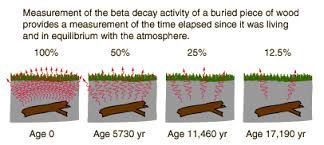Scientists from the University of Liverpool are developing a new carbon dating technology that could revolutionize field archaeology.
In partnership with Norton Priory Museum & Gardens and supported by funding from theArts Council England, they will develop a new technique which will make it quicker and easier to date archaeological finds.
Radiocarbon dating is used to determine the age of ancient objects by means of measuring the amount of carbon-14 remaining in a sample.
However it is an expensive process which takes place offsite and typically takes six weeks or more which means that an excavation is likely to be over before the important dating information can be obtained.
Mass spectometer
The new technology uses a quadrupole mass spectrometer (QMS) which will reduce the time it takes to obtain data for a bone sample to just two days.
Significantly the technology can also be utilised onsite, and this is the first time this has been attempted.
So far the technique has been has been used to analyse both medieval and post medieval bone samples provided by Norton Priory Museum & Gardens, the most excavated monastic site in Europe.
The initial results have been compared with the conventional methods and show encouraging levels of agreement.

